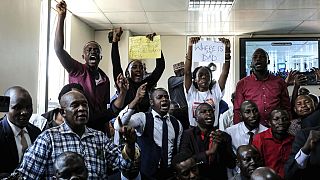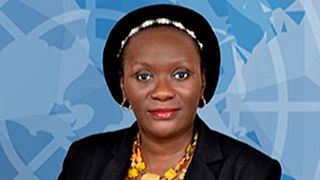Uganda
Ugandan engineers have developed Microfuse, a device designed to make computing and computers accessible to all Africans, especially those who are dealing with irregular power supplies.
The device is currently being tested in a school on the outskirts of Kampala.
It is a small revolution for the school. The stick computers prove to be much cheaper than traditional computers and also consume much less energy. This is a great alternative for many of the staff.
"In a preschool like ours, we don't hire people who have very good computer knowledge and skills, we hire people who want to work and use computers, but who don't always have access to the technology. So the Microfuse device, for example, allows staff, from teachers to the treasurer to myself, the principal, to use a computer. It's been very easy for all of us," says Jeff Ssembiro, principal of Jolly Tots Elementary School.
The frustration of many people with the lack of electricity resulting in the inability to use computers was the trigger for Ivan, the creator of the device.
"As an engineer, I thought that if I, who come from a middle-class family, had real problems acquiring a computer - which I need at the university where we are required to write reports or do research and assignments - what about a student from a low-income family?
The laptop, made from local materials, costs $70 and can operate in very remote areas of the continent thanks to solar energy.
The computer market in Uganda is in limbo. According to the National Bureau of Statistics, only 2% of Ugandans currently have access to a computer. Ivan and his team hope to have 10,000 devices on the market by October, but they also want to go further and aim for the African Continental Free Trade Area in order to be more competitive.












Go to video
Oligui Nguema: A breakthrough or continuity for Gabon? [Business Africa]
Go to video
Robot waiter becomes a star attraction at Havana restaurant
Go to video
Drones, AI cars and delivery robots: Gitex Africa tech show closes its third edition
Go to video
Drones transform life, industry in south China's Shenzhen
01:36
3D telemedicine brings healthcare to rural Ghana
02:42
Global healthcare at a crossroads: African scientists seek local solutions